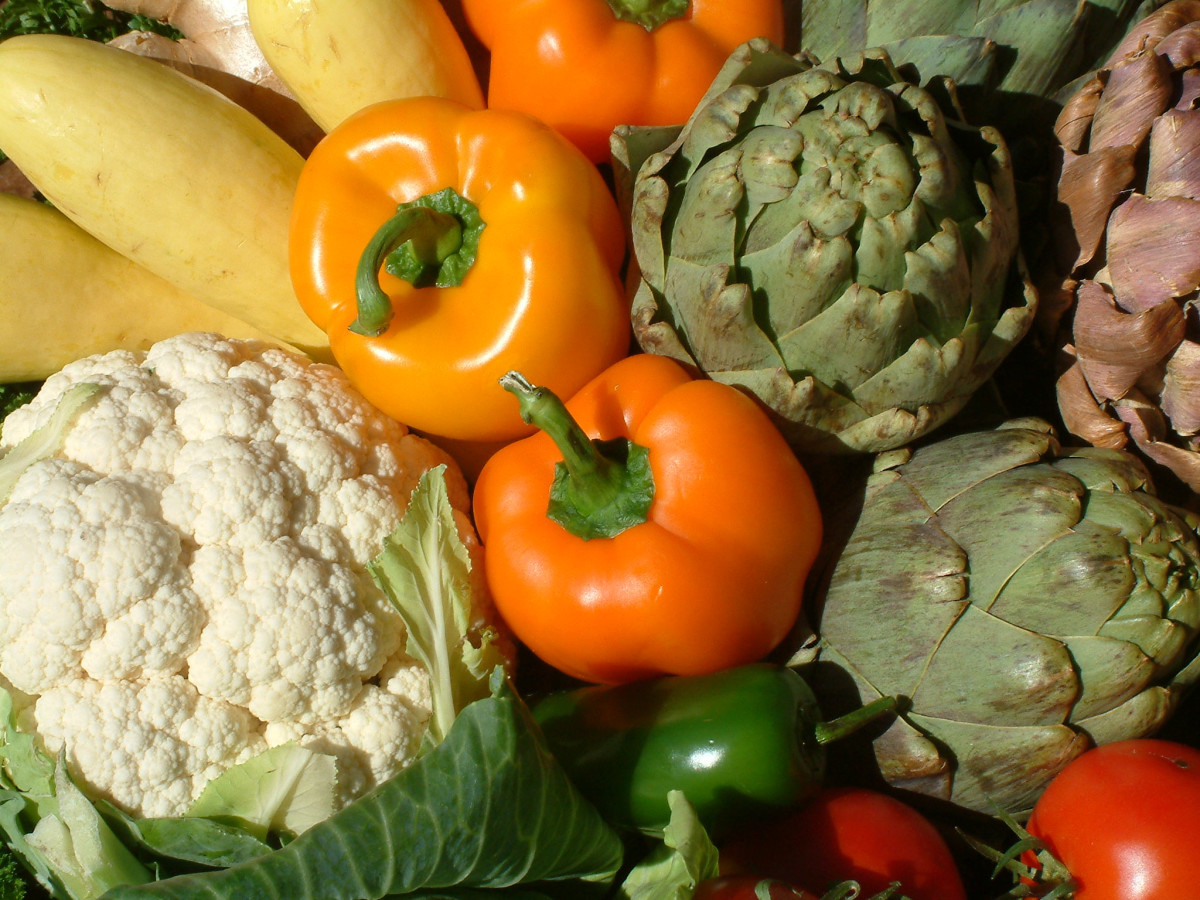Is Vegetarianism A Must For Yoga Practitioners?


How to Be Vegetarian : Transitioning to a Vegetarian Diet
Vegan and Yoga
Introduction to Vegetarianism
Most people do not put much thought into what foods they eat as part of their diet. For some, they will eat anything that tastes good or whatever they might be craving for. But yogis consider diet and the act of eating as sacred, since proper diet is one of the five basic principles of yoga. So, how do you make a compromise? What diet is best suited in following the spiritual path of yoga?
Some of you might be familiar with vegetarianism, but there are still many who lack in-depth understanding of what is the concept behind this type of diet scheme. Basically, those who adapt a vegetarianism diet have devoted themselves into eating only plant-based foods and mostly do not include meat at all.
Classifications of Vegetarianism
Hence, some of the foods that they eat include vegetables, fruits, seeds, nuts, grains, or cereals. But there are different classifications under the generic term vegetarianism and each of them have different rules as to what foods are allowed as part of this diet plan:
- Vegetarians – This type of vegetarianism exclude all types of meat in their diet, even including fish, poultry, shellfish, or crustaceans. They do allow eating animal products such as egg or dairy, though.
- Vegan – This one is a lot stricter than vegetarians since they do not eat meat at all, even dairy products and eggs.
- Lacto-vegetarians – This diet allow eating dairy products as part of their diet, but strictly warns about eating eggs.
- Semi-vegetarian – Majority of the foods included in the diet are vegetables, but it does allow poultry and fish.

Three Categories of Food in Yoga
The type of diet that yogis must adapt are discussed in the old yoga doctrines. Therefore, it is important for yoga practitioners to dedicate themselves into adapting this diet scheme as part of their lifestyle. Here are the three food categories as defined in yoga:
*Sattvic: These types of foods are what is advocated in yoga since they are considered as pure. These are foods that are identified to foster spiritual growth, while producing a calm body and mind.
*Rajasic: These foods are known to create an overstimulating effect on the body. Thus, you need to avoid it if you can. Some of the identified effects to intaking Rajasic foods include developing a restless mind and body.
*Tamasic: In addition to Rajasic, you must also avoid foods belonging to this category since they are known to make your mind dull or result in a heavy sensation.

Yoga Poses & Equipment : Yoga Diet Tips
Yoga Diet Plan
What Makes Up a Yoga Diet?
Yogis who are in the process of developing a diet plan that would facilitate for the acquisition of yoga benefits must be interested to find out what type of diet are espoused by this practice. An important step is truly the classification of the three food categories in yoga, as listed above. Your knowledge of these food categories will enable you to pinpoint exactly what types of food belong in which category. And you need to remember that only Sattvic foods are approved for yoga practitioners.
But if you are going to intake foods belonging to the other categories, you need to limit the amount of intake. Even too much of the Sattvic foods are not approved either. And finally, you need to intake only the right amount of food that your body needs. Yoga is all about moderation and ensuring that you meet the dietary requirements of the body.
Should Yogis Practice Vegetarianism?
Here now is a tougher question: are yogis obliged to develop vegetarianism as their diet? If you were to base it on old yoga teachings and tradition, then it therefore tells you that adapting a vegetarian diet is the means wherein you can optimize the impact it has on your life. If you can recall, ancient texts in yoga advocate developing it as a lifestyle, instead of just merely looking at it as a fitness tool.
Moreover, adapting a vegetarian diet will also enable you to follow the spiritual path of yoga. There is an emotional attachment to the food that you eat. Hence, eating the right kinds of food are known to bring harmony in the body, mind, and spirit. And choosing otherwise will also produce its own consequences in your body.

The Ulitmate Yoga Diet
14 Yoga diet
Purifying Action of a Vegetarian Diet
Expert yogis believe that following the vegetarian diet offers purification to your body and soul. This is because the philosophy of diet in yoga incorporates a lot of spirituality and their belief into it. Here are some reasons why you can be purified by opting for a vegetarian diet:
- By opting to not eat meat, you also support the advocacy to stop animal slaughter to produce food. Eating with a pure conscience will enable you to optimize the benefits of your food.
- The process of killing enemies for food fills them with negative emotions, such as fear and anxiety. Therefore, eating the meat that is a product of that slaughtering will enable you to acquire all of those negative emotions coming from the animal. When you opt for a vegetarian diet, you will not acquire such negativity.
- Ancient Hindus viewed animals as sacred, since they too are living creatures. In fact, this was specifically espoused in the Ahimsa or non-violence category of the yama in the Yoga Sutras.
Karma and Choice of Diet
To further expand on the concept of Ahimsa or non-violence to other living creatures, ancient teachings of yoga believes that you must always observe Karma as part of your lifestyle. Hence, it involves your diet too. Animals are like humans who have emotions. You must not deprive them of the ability to enjoy life as any humans would aspire to do so.
Killing them for food source therefore destroys balance in the ecosystem. Hence, there is a recent rise in the number of individuals, not just yoga practitioners, that have opted to adapt a vegetarian diet.

Concept of Free Will
Although expert yogis promote the vegetarian diet as most efficient to incorporate into your yoga lifestyle, they are still giving yogis the free will to choice whatever type of diet they want. Imposing this diet scheme on an individual defies the rules of yoga since there is still the emotional attachment involved with eating.
As an alternative, most yogis are forging their efforts to educate yoga practitioners on the essence of eating meat and opting to turn vegetarian. That way, an individual yoga practitioner is able to weigh in ethical issues and other beliefs of the yoga philosophy when deciding on foods that one must incorporate into their diet.











